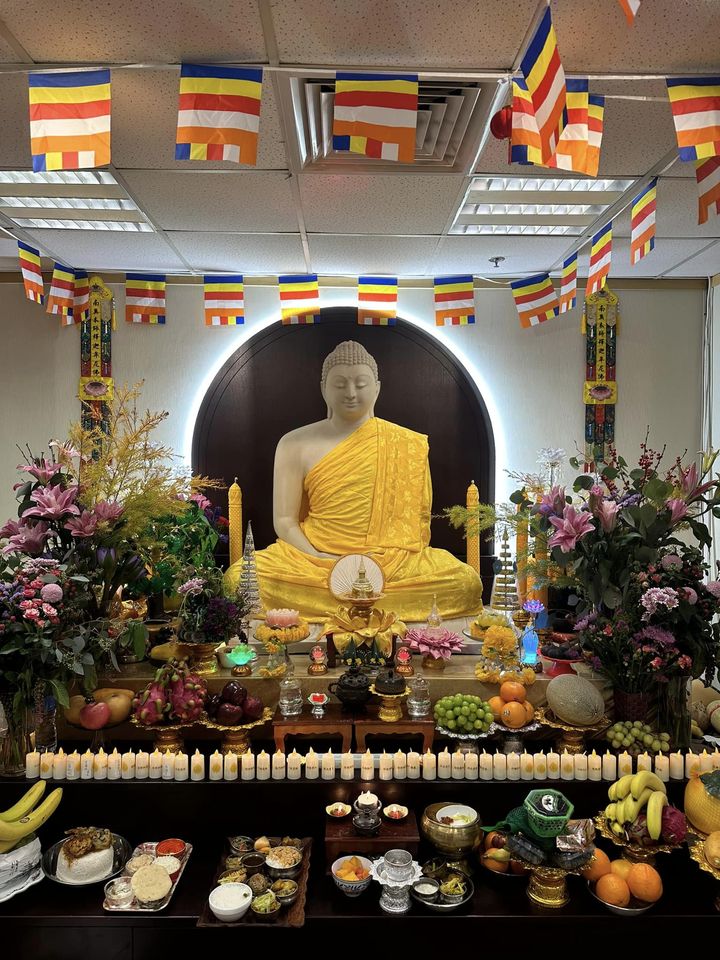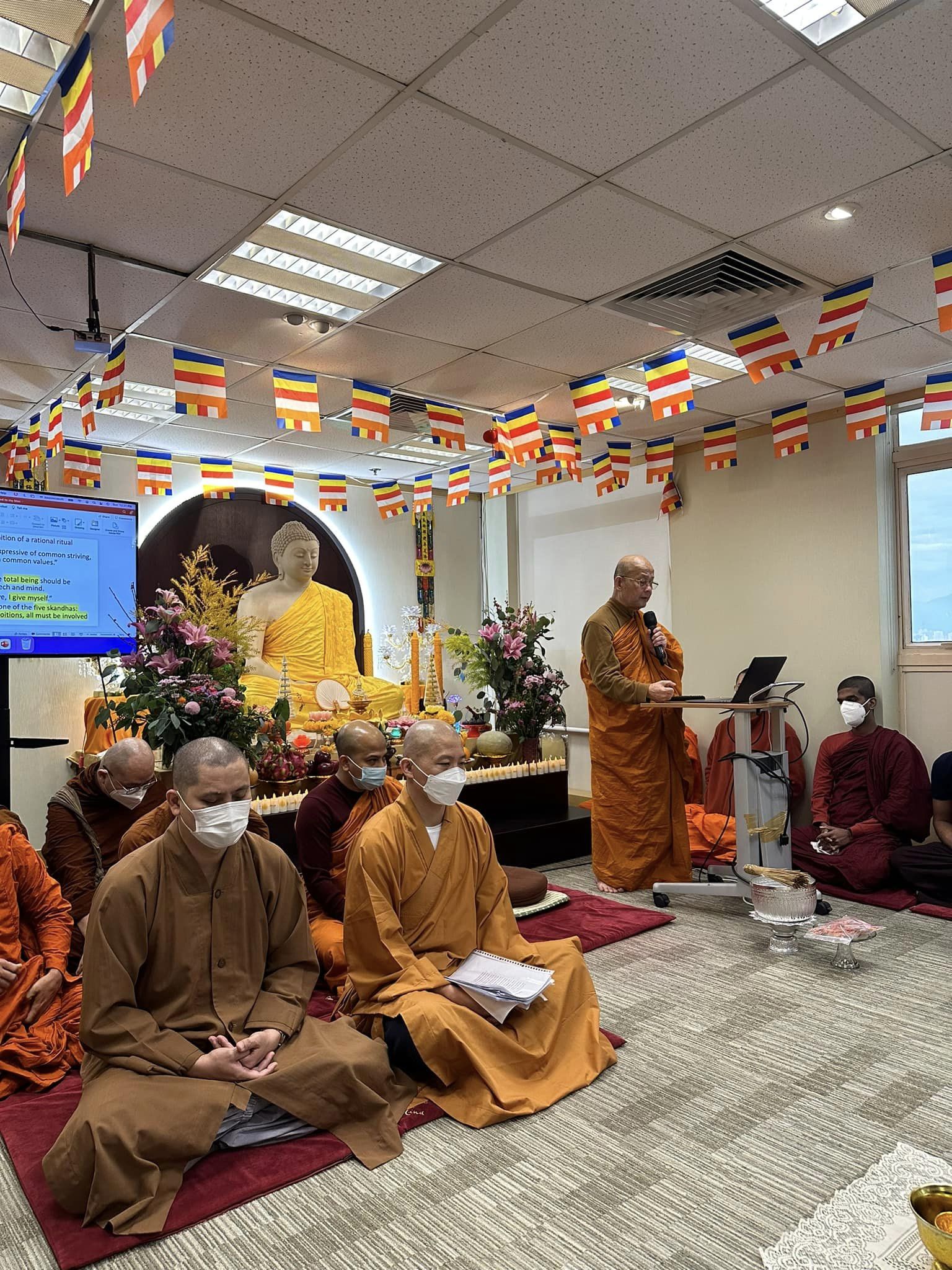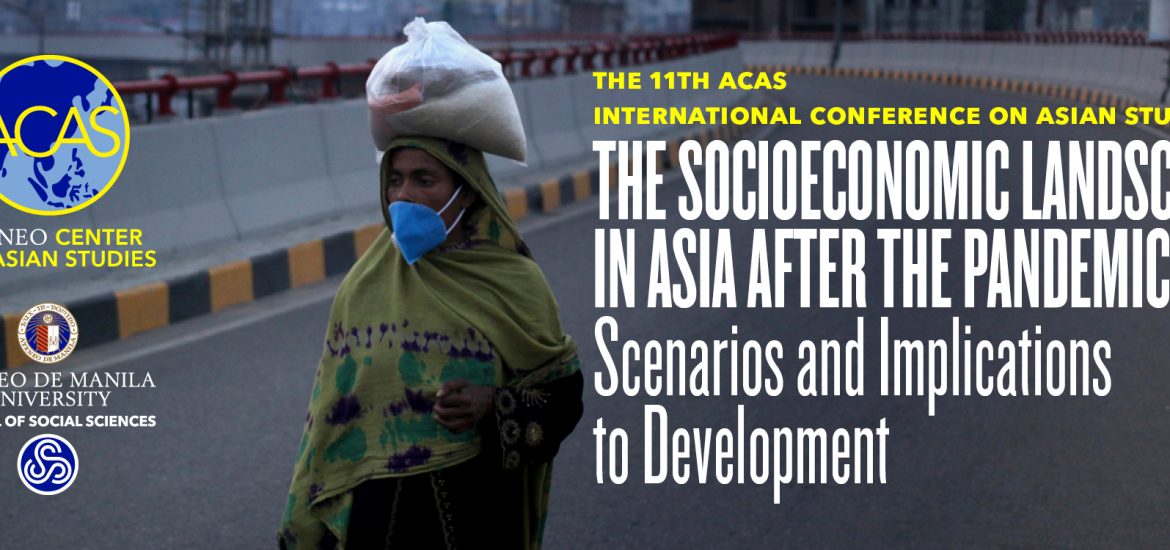From the 11th International Conference on Asian Studies (ACAS ICAS 11) on 17-18 November 2022, Ateneo Center for Asian Studies (ACAS)
The Socioeconomic Landscape in Asia after the Pandemic: Scenarios and Implications to Development: The Digital Transformation of Religious Life
COVID-19 upended long-held assumptions and trends about the economy and society, forcing governments, businesses, and organizations around the world to adapt to a more volatile and unstable global climate. Buddhist organizations have not been left untouched, with monasteries in traditionally pious regions or countries bled dry of donations or organizations pivoting to providing spiritual support or counselling to individuals and families left traumatized by declining quality of life or adrift in a rapidly changing economy. At the same time, many Buddhist leaders have been coordinating projects and founding initiatives that have injected new a renewed sense of purpose and urgency to Buddhist activity.
COVID-19 has forced Buddhist organizations across Asia to reassess their place in the world. It is important to define what kind of Buddhists we are talking about. Someone born into a Buddhist society does not a Buddhist make. Strictly speaking, one is truly a Buddhist only if they have taken refuge in the Triple Gem: the Buddha, Dharma, and Sangha. While this basic ceremony of Buddhist confession can be a regular event in regions of the world like Chittagong in Bangladesh or rural Thailand, the percentage of people (especially the young) that formally take refuge is unequivocally in the minority across all of contemporary Asia. Buddhist organizations, whether they define themselves as non-profits, NGOs, or charities, exist within these nexuses, where this minority of practicing Buddhists could be said to exert a degree of influence and exercise social and cultural capital.
I would prefer to use the terms “Buddhist cultures,” “Buddhist-values dominated societies,” or “Buddhist-influenced cultural complexes.” It is more accurate to describe the Buddhist world as a diffuse, “glocalized” network of such complexes, where the formally Buddhist minorities interact with a majority that may or may not have sympathies toward the religion, but in general accept and sometimes embrace its influence in greater society.
Organizations in these cultures, diverse though they are, have experienced similar challenges in the wake of a world recovering from COVID: restrictions on physical events and activities that are critical to the life of Buddhist ritual and community, economic uncertainty that has reduced donations and therefore revenue, and even political turmoil that has affected the considerations and calculations of Buddhist institutions, particularly larger and more influential bodies.

A key example is the Buddha-Dharma Centre of Hong Kong. BDCHK is based in downtown Hong Kong, and since 2012 has been promoting the integration of Buddhist Studies and Dharma practice. The centre is under the directorship of Malaysian-born Buddhist monk Ven. Prof. Dhammajoti, who has devoted his life to Buddhist Studies while also helping monastics from around Asia, including countries like Sri Lanka and Bangladesh, to study at higher institutions of Buddhist academia.
Under Ven. Dhammajoti’s leadership, BDCHK has promoted the study and research of Buddhism through academic courses and publications while also hosting important Theravada festivals and events, most recently Kathina this month. In June, my colleagues reported that in light of the crisis, the BDC raised funds to help families in crisis-hit Sri Lanka to secure daily essentials, such as food, medicines, and other necessities. A portion of the funds raised would also be donated to educational institutions in Sri Lanka that are experiencing financial difficulties after the Sri Lankan government abruptly terminated or reduced pledged grants in the wake of economic collapse and debt default.
According to the BDCHK Facebook page, rice, lentils, cooking oil, and other items worth 7,000 rupees (US$20) were distributed to 900 needy families in three distribution batches. This was all in response to the economic and socio-political malaise that preceded COVID in its origin, but exploded in the Sri Lankan people’s face in the wake of the pandemic.

It is important that even though BDCHK has an enduring relationship with Sri Lanka, it is a Hong Kong-based organization. Prior to COVID-19, Hong Kong was famously known throughout the Buddhist world as an ideal “stopping point” for Buddhist leaders travelling throughout Asia. With Hong Kong now opening up again, it is hoped that this role will gradually return. But the reality is that Buddhist organizations, while still favouring face-to-face events (meditation retreats and ritual ceremonies like pujas make physical interaction much more preferable), have recalibrated the frequency and urgency of their in-person events. Where possible, meditation classes, Dharma courses, and so on are streamed live online or recorded and put on websites, YouTube channels, or social media accounts.
This reduction of logistical necessities reflects a cost-cutting mentality in the midst of economic uncertainty. Buddhist organizations that can fall back on large, consistent donors have unquestionably weathered the pandemic and the fall in individual donations better than smaller groups.
Buddhist organizations have responded fairly rapidly and robustly to Sri Lanka’s cost-of-living crisis since April, although its political crisis still has not been resolved. And as Hong Kong emerges from COVID restrictions, its Buddhist leaders are actually more active than ever as they adapt their work to the changing needs of followers in the city and around the world.
Related news from BDG
Hong Kong Buddhists Donate Essential Items to Sri Lanka Amid Economic Crisis


